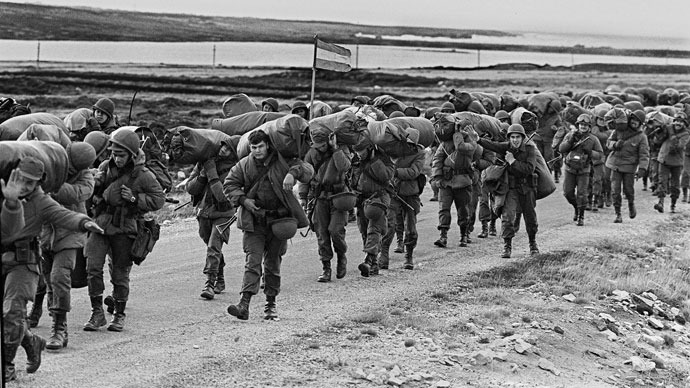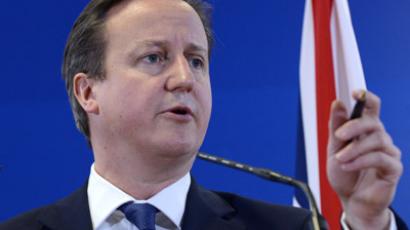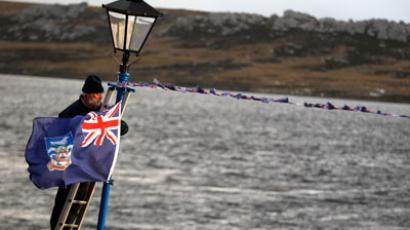Falklands ‘mistake’: Thatcher files reveal split over war with Argentina

The British government was divided over military involvement in the Falklands, new documents from former Prime Minister Thatcher’s archives have revealed. The papers show strong opposition in Thatcher’s own party to going to war with Argentina.
Contrary to the united front presented by the ruling
conservative party before going to war with Argentina in 1982,
there was heavy criticism of Thatcher’s jingoistic attitude to the
conflict.
The documents published by Churchill College, Cambridge University,
show the ex-PM’s correspondence with party members. One of
Thatcher’s MPs warns that “we are making a big mistake,”
while another advised “blowing up a few ships and nothing
more.”
Sir John Hoskyns, Thatcher’s policy advisor, voiced fears that the
government would “make almighty fools of themselves” and it
would spell the downfall of the Thatcher regime.
One West Devon MP told Thatcher that “my constituents want
blood.”
There was a significant call among Tory MP’s calling for
“calm” in the face of a growing push towards a “hard
line.”
"Will only support the fleet as a negotiating ploy. If they will
not negotiate we should withdraw," wrote one MP.
Thatcher’s chief of staff, David Wolfson, even suggested a plan to
bribe the islanders, promising them $100,000 and the possibility of
taking up residency in Britain, New Zealand or Australia.
A historian from the Margaret Thatcher Archive Trust, which
disseminated the documents, said that the documents “reveal how
stressful this situation was, it was a massive undertaking which
tested her to the full.”

“These papers [show] in the early days of the conflict there was
great confusion and doubt. We might have expected her to be
breathing fire. She's not. She's always making the case,” said
historian Chris Collins.
The Falklands war was sparked when Argentinian forces mounted an invasion of the British-controlled islands on April 2, 1982. The UK reacted shortly afterwards, dispatching its navy to retake the Falkland Islands. The resultant conflict lasted 74 days and left 649 Argentines dead as well as 255 British servicemen.
Argentina still disputes Britain’s claim on the Falklands, which they call Las Malvinas, as they say it lies within their sovereign territory. The issue has been a significant bone of contention between the two countries recently.
The islanders themselves held a vote on whether or not to remain a British Overseas Territory at the beginning of March, with an overwhelming majority choosing to remain a British colony.
In February, Argentina refused an offer from the British government to discuss the sovereignty of the Falklands with the islands’ inhabitants. Argentine Foreign Minister Hector Timerman insisted that the UN regards the dispute as a bilateral issue between London and Buenos Aires.
“I think the fanatics are not in Buenos Aires, [but] maybe in the United Kingdom because they are 14,000km away from the islands. And I think they are using the people living in the islands for political [reasons] and to have access to oil and natural resources which belong to the Argentine people,” he said in an interview with The Guardian in February.















